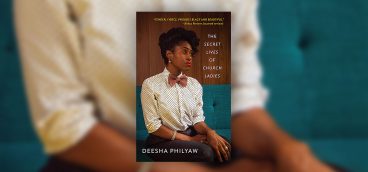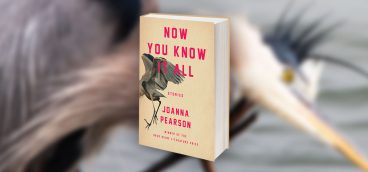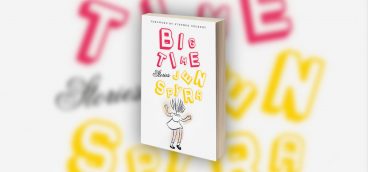
I loved reading “The Plot to Scapegoat Russia” by Dan Kovalik, a lawyer with United Steelworkers of America in Pittsburgh, even though I disagreed with just about every page of it. We all benefit from hearing sustained arguments by serious people who challenge our beliefs and assumptions. In the end, Dan did not change my mind one smidgen. I still believe the Vladimir Putin regime is a corrupt, mafia-like organization. The Russian government is an adversary that must be met with military strength as a prelude to clear-eyed diplomatic relations. But I also think we need books like this to temper hysteria over Russia and see the flaws, hubris and hypocrisy in U.S. policy over the decades.
If you’re going to have a political disagreement with someone, it helps to start with high personal regard. I have admired Dan since we met two decades ago on the barricades—opposing a landlord-driven shutdown of an egalitarian Palmer’s restaurant near our office Downtown. (We failed.) He’s written strong op-eds for us at the Post-Gazette. Gathered together with our kids and mutual friends, we have spent beery nights at each others’ homes in conversations about global politics as well as school bus schedules. Since I know him as a decent and moral person, I absorbed the following passages with equanimity: “I certainly endorse the view that the passing of the Soviet Union was a sad event… I grieve its passing still… There were intangible benefits that ‘real existing socialism’ brought with it. The citizens of the USSR and former East Bloc felt a much closer kinship with one another and, if you’ll forgive me, comradeship, than they do now.”
As they say, where you stand depends on where you sit. Dan’s political orientation was formed in Latin America in the 1980s. He writes persuasively about his travels during college, when he saw firsthand the folly of U.S. anti-communist policies that propped up dictators and winked at atrocities. A Catholic upbringing and education followed by a law degree from Columbia University helped lead him to dedicate his life to opposing this kind of oppression. My views come from the other side of the barrel. I lived in Prague from 1990 to 1994, and saw the aftermath of damage done by the authoritarian system of the Soviet Union and its adherents in the East Bloc. I may have arrived a mushy liberal, but I left as an eternal anti-communist, convinced that human nature requires free expression and free markets and is corrupted by collectivism and a command economy. (The socialistic French healthcare system, however, is the way to go.)
Here in the present day, Dan sees American animosity toward Russia as part of “invent[ing] enemies in order to justify its bloated military.” The CIA “poses a much greater threat to U.S. democracy than Russia ever could.” He voted for Green Party candidate Jill Stein in 2016 because the evils of Hillary Clinton and Donald Trump were too great to bear, though Trump’s “one redeeming attribute” was that “he wanted, for whatever reason, to make peace with Russia, which I sincerely believe is a worthy friend and ally.” He suspects that the CIA is “lying about the Russians having hacked the Democratic National Committee” and is even willing to suggest that U.S. spooks “procured and leaked the DNC emails themselves in order to set up the Russians.” That last point strikes me as absurd. Then again, I made wrong predictions at every stage of the 2016 campaign, and my mind is filled with NPR and The New York Times, two news sources Dan considers lackeys in the anti-Russia media brigade.
I concluded “The Plot to Scapegoat Russia” with the pledge to invite Dan and his wife over for dinner this holiday season, along with some other Ivy League friends— Republicans who voted for Trump and think that the Russiagate story is bunk, though likely for different reasons. With enough elevating spirits, we’re going to find a way to save America’s soul.
If you like a mix of elevating spirits and fractious politics—filtered through the glories of American free enterprise—“ The Whiskey Rebellion and the Rebirth of Rye” goes down nice and smooth.
By the end of this concise story of rye whiskey’s importance to Pittsburgh history, you will have developed a hankering for a festive drink made with the distilled grain.
The family that owns Wigle Whiskey in the Strip District is happy to oblige. Two family members—Mark Meyer and Meredith Meyer Grelli, his daughter — wrote the book. It ends with 15 recipes for cocktails based on their elixirs. It’s a soft sell. You can tell that they are authentically fascinated with the history they have presented and are honorably engaged in this intriguing enterprise that has brought them national awards. Cheers also to Belt Publishing, the books arm of the online Belt Magazine, focused on the Rust Belt and Midwest; their professional standards are evident. This is not a promotional pamphlet but a real, if modest, book.
Previous to picking up these 97 pages, my active knowledge of the Whiskey Rebellion of the 1790s was: It happened and it was important. Now I know, rather painlessly, the details and theme of the brutal showdown. The rough-and-tumble Western Pennsylvanians of Scots-Irish heritage rebelled against snooty Philadelphians— some things never change—who wanted a tax on rye whiskey as a legit way to fund this new federal government. The rebels found it unevenly applied, and literally applied tar and feathers to anyone trying to enforce it. Warfare ensued. To all of you enamored with Treasury Secretary Alexander Hamilton because of “Hamilton” on Broadway: He could be a nasty guy when he wanted his way. “Philip Wigle, a Revolutionary War veteran, was ‘one of the most active insurgents in the western counties,’ ” the Meyers write, quoting the Pittsburgh Gazette, one of early America’s great newspapers. To their credit, they don’t overplay the role of their distillery’s namesake. The Whiskey Rebellion could have derailed our young republic. Grasping its basics is essential to understanding Pittsburgh.
Chapter 2 describes how Henry Clay Frick got his start at Overholt Distillery, maker of the famous Old Monongahela Rye. His grandfather Abraham Overholt owned the place and rewarded Frick’s drive with increased responsibility. Frick parlayed that into investments in coal, which Andrew Carnegie needed. Next thing you know young Henry’s a millionaire, best buddies with Andrew Mellon, who ended up buying part of the Overholt Distillery. When Secretary Mellon had a quandary, as he was effectively the nation’s chief Prohibition agent. “Mellon did what any creative politician would do,” the Meyers observe. “He granted his Overholt Distillery one of the few medicinal whiskey licenses that were available to existing distilleries.”
Mindful of the average reader’s interest, the Meyers blast through the state of the craft whiskey business today. Reading time: about as long it takes a modern mixologist to conjure up one of those elaborate cocktails that you are not sure whether to drink or photograph. Again, they deliver the information without tooting their own horns too much.
Wigle’s brown ryes run between $45 and $75, so no one can accuse them of encouraging people to drink themselves silly. This enlightening little book shows that they have made their avocation their vocation, and are building a Pittsburgh business that should age well.
Lori Jakiela’s essays are like the soundtrack of our times. With the plain-spoken common sense of the average American, she articulates the struggles and glories of being a working parent in a just-about-making-it economy. She respects the legacy of her working-class upbringing in Trafford, where she lives in her childhood home with her kids and writing partner-in-crime Dave Newman. All of her work is juiced up with literary imagination and good humor, aiming high but never highfalutin.
The Fall issue of Pittsburgh Quarterly published one of the book’s standout essays, “The Union Project,” a survey of her universe structured around her gig as a caterer for “a hipster-ish wedding” at the rehabbed church in Highland Park. My personal favorite of the 22 in this collection is, “There She Is, Your Ideal.” It’s an audible-laughter-inducing recollection of her ill-fated book signing at a Sam’s Club for her first book, “Miss New York Has Everything,” which chronicled her coming of age as a Delta flight attendant based in New York. It would be malpractice to reveal the misunderstanding that led the male shoppers of Sam’s Club to be so eagerly anticipating her appearance, but let’s just say the “Miss New York” part of the title was misunderstood.
Jakiela’s previous book, “Belief Is Its Own Kind of Truth,” detailed her adult life as an adopted kid, reckoning her deep love and appreciation for her “real” parents with her undying yearning to know about the biological. Those themes permeate this collection. “Time for me doesn’t heal anything,” she writes in “Begin the Begin,” about her steelworker father’s thwarted dreams to be a singer. “It just makes things go deeper until everything echoes everything, until I can almost hear my father’s voice when I’m stuck in traffic, stuck in a meeting, stuck.” Jakiela’s ability to be so perfectly serious is earned by the skill at being absolutely hilarious, as shown by “The Plain Unmarked Box Arrived,” a love letter to marital intimacy, as practiced furtively in a small house with nosy kids. The New York Times first published that essay in its Modern Love section—and Jakiela takes it to another level here with a 26-point “Clarifications and Corrections” that alone is worth the price of admission.





